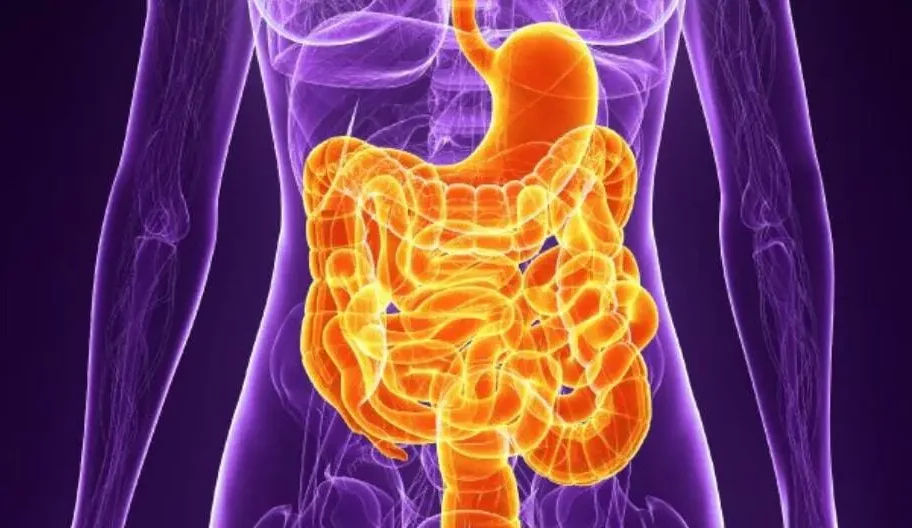Everyone has heard of metabolism, that mystic force that determines how quickly we burn calories and shed pounds. It’s easy to lament a “slow” metabolism, especially when weight loss becomes challenging. However, our metabolic rate is not set in stone, and with a few lifestyle tweaks, you can reset and boost it. Let’s discover how.
What is Metabolism?
Metabolism refers to the complex set of chemical processes that occur within living organisms to maintain life. These processes are responsible for converting the food we consume into energy, as well as regulating various cellular and bodily functions. Metabolism can be broadly categorized into two main types:
- Catabolism: This involves breaking down complex molecules, such as carbohydrates, fats, and proteins, into simpler forms. During catabolic processes, energy is released, which is used for various cellular activities.
- Anabolism: Anabolism encompasses the synthesis of complex molecules from simpler ones. It requires energy and is essential for processes like cell growth, repair, and the production of essential molecules.
Several factors can influence an individual’s metabolism:
- Age: Metabolism tends to slow down with age. This is primarily due to a decrease in muscle mass and a decrease in physical activity, which can lead to a reduced metabolic rate.
- Body Composition: Muscle tissue burns more calories at rest than fat tissue. Therefore, individuals with a higher proportion of muscle tend to have a faster metabolism. Conversely, those with more body fat may have a slower metabolism.
- Gender: Men generally have a higher basal metabolic rate (BMR) than women because they tend to have more muscle mass and lower body fat percentages.
- Genetics: Genetic factors can play a significant role in determining an individual’s metabolic rate. Some people may inherit a faster or slower metabolism from their parents.
- Hormones: Hormones, such as thyroid hormones, play a crucial role in regulating metabolism. An overactive or underactive thyroid gland can lead to significant metabolic changes.
- Diet and Nutrition: The food you eat can affect your metabolism. For example, consuming more calories than your body needs can lead to weight gain and a slowdown in metabolism, while a balanced diet with appropriate nutrient intake supports a healthy metabolism.
- Physical Activity: Regular physical activity, including both aerobic and strength-training exercises, can increase muscle mass and boost metabolism. It can also lead to the “afterburn effect,” where your body continues to burn calories after exercise.
- Environmental Factors: Climate and temperature can influence metabolism. In colder environments, your body may work harder to maintain its core temperature, leading to increased energy expenditure.
- Stress: Chronic stress can impact hormones like cortisol, which may influence metabolism and promote weight gain.
- Sleep: Inadequate or poor-quality sleep can disrupt hormone regulation, particularly those related to appetite and metabolism, and lead to weight gain and metabolic dysfunction.
- Medications and Health Conditions: Certain medications and health conditions, such as diabetes or metabolic disorders, can affect metabolism. Medications may influence hormone levels, while specific diseases can alter metabolic processes.
It’s essential to note that while these factors can affect metabolism, individual variations are significant. A person’s metabolism is a complex interplay of genetic, environmental, and lifestyle factors, making it unique to each individual.
Strategies to Reset Your Metabolism
- Prioritize Strength Training: Building muscle mass can significantly enhance your resting metabolic rate. Incorporate weight lifting or resistance training exercises into your routine. When you build muscle, your body burns more calories even at rest, as muscle tissue requires more energy to maintain compared to fat.
- Stay Active: Regular aerobic activities like jogging, swimming, or cycling are essential not only for burning calories but also for temporarily boosting your metabolism after exercise. This post-exercise boost, often referred to as excess post-exercise oxygen consumption (EPOC), can last for several hours, increasing the overall calories burned during the day.
- Eat Enough: Drastically cutting calories can lead to a decrease in your metabolic rate, which can stall your weight loss efforts. It’s crucial to consume a balanced diet with enough calories to support your activity level and maintain metabolic efficiency. Aim for a sustainable caloric deficit rather than a drastic reduction.
- Stay Hydrated: Water is essential for various metabolic processes, and staying adequately hydrated is vital for overall health. Additionally, drinking cold water may temporarily boost metabolism as your body expends energy to heat it to your core temperature. Make sure you stay hydrated throughout the day to support these metabolic processes.
- Consume Protein-Rich Foods: Incorporating protein into your diet can provide a temporary metabolic boost through the thermic effect of food (TEF). TEF refers to the increase in metabolic rate that occurs after consuming food. Protein has a higher TEF compared to fats and carbohydrates, meaning it requires more energy for digestion and metabolism.
- Avoid Metabolic Slowdown: Reducing stress, getting adequate sleep, and steering clear of crash diets are essential to maintaining a healthy metabolism. High stress levels and insufficient sleep can disrupt hormonal balance, which can negatively impact your metabolism. Adopting stress management techniques and ensuring you get enough quality sleep can help prevent a metabolic slowdown.
- Consider Metabolic Supplements: A promising addition to metabolic-reset strategies is the “Metabolic Reds” supplement by Trumeta. This supplement harnesses the power of red superfoods and other natural ingredients to optimize metabolism and promote healthier blood sugar levels. The synergistic blend of ingredients in Metabolic Reds supports your body’s natural energy production, potentially amplifying the benefits of the metabolic strategies you adopt. Always consult with a healthcare professional before incorporating supplements into your routine.
By combining these strategies, you can effectively reset your metabolism and support your fitness and weight loss goals. Remember that individual results may vary, and it’s crucial to maintain a holistic approach to your health and well-being. A promising addition to metabolic-reset strategies is the “Metabolic Reds” supplement by Trumeta. Harnessing the power of red superfoods and other natural ingredients, this supplement aims to optimize metabolism and promote healthier blood sugar levels. The synergistic blend of ingredients in Metabolic Reds supports your body’s natural energy production, potentially amplifying the benefits of the metabolic strategies you adopt.
Beneficial Metabolism-Boosting Foods
In addition to the mentioned foods, there are several other options that can help support and boost your metabolism:
- Lean Protein: Foods like lean meats, poultry, fish, tofu, and legumes are rich in protein. Protein requires more energy to digest than fats or carbohydrates, which can temporarily boost your metabolic rate.
- Berries: Berries such as blueberries, strawberries, and raspberries are packed with antioxidants and fiber, which can help support a healthy metabolism and aid in weight management.
- Nuts and Seeds: Almonds, walnuts, chia seeds, and flaxseeds are good sources of healthy fats, fiber, and protein. They can promote a feeling of fullness and provide a steady release of energy, helping to maintain a balanced metabolic rate.
- Coffee: The caffeine in coffee can provide a temporary metabolism boost, increasing energy expenditure. However, it’s essential to consume it in moderation and avoid excessive sugar or high-calorie additives.
- Fatty Fish: Fish like salmon, mackerel, and sardines are rich in omega-3 fatty acids, which may support metabolic health and reduce inflammation.
- Leafy Greens: Vegetables like spinach, kale, and Swiss chard are nutrient-dense and low in calories, making them excellent choices for supporting a healthy metabolism.
- Spices: Certain spices, such as turmeric and cinnamon, have been associated with potential metabolic benefits due to their anti-inflammatory and thermogenic properties.
- Water: Staying hydrated is crucial for metabolic processes, and drinking enough water helps maintain optimal body functions, including metabolism.
The Role of Sleep and Stress
Proper sleep and stress management play a significant role in supporting a healthy metabolism:
- Sleep: Quality sleep is essential for hormonal balance and overall well-being. Inadequate sleep can disrupt hormones that regulate appetite and metabolism, leading to weight gain and metabolic disturbances. Aim for 7-9 hours of quality sleep per night to support your metabolic health.
- Stress: Chronic stress can lead to imbalances in cortisol and other hormones that can slow down your metabolic rate. Practice stress management techniques such as meditation, deep breathing, or yoga to reduce stress and support a healthy metabolism.
Metabolism and Age
It’s true that metabolism naturally slows with age, but this doesn’t mean weight gain is inevitable. To counteract the effects of aging on metabolism:
- Stay Active: Regular physical activity, including both cardiovascular exercises and strength training, can help maintain muscle mass and keep your metabolism efficient as you age.
- Eat a Balanced Diet: A diet rich in lean proteins, whole grains, and nutrient-dense foods can support your metabolism and overall health.
- Adopt Metabolic-Boosting Strategies: Incorporate the strategies mentioned earlier in the text to optimize your metabolic rate, regardless of age.
By incorporating these foods, managing stress, getting sufficient sleep, and maintaining an active lifestyle, you can support a healthy metabolism and mitigate the effects of age-related metabolic changes.
Conclusion
While genetics play a role in determining metabolic rate, there’s plenty within our control. With a combination of the right foods, regular activity, and potentially beneficial supplements like Metabolic Reds from Trumeta, you can give your metabolism the boost it needs to keep you energetic, healthy, and feeling your best. Remember, it’s not about quick fixes but adopting sustainable habits that support your metabolism in the long run.






